







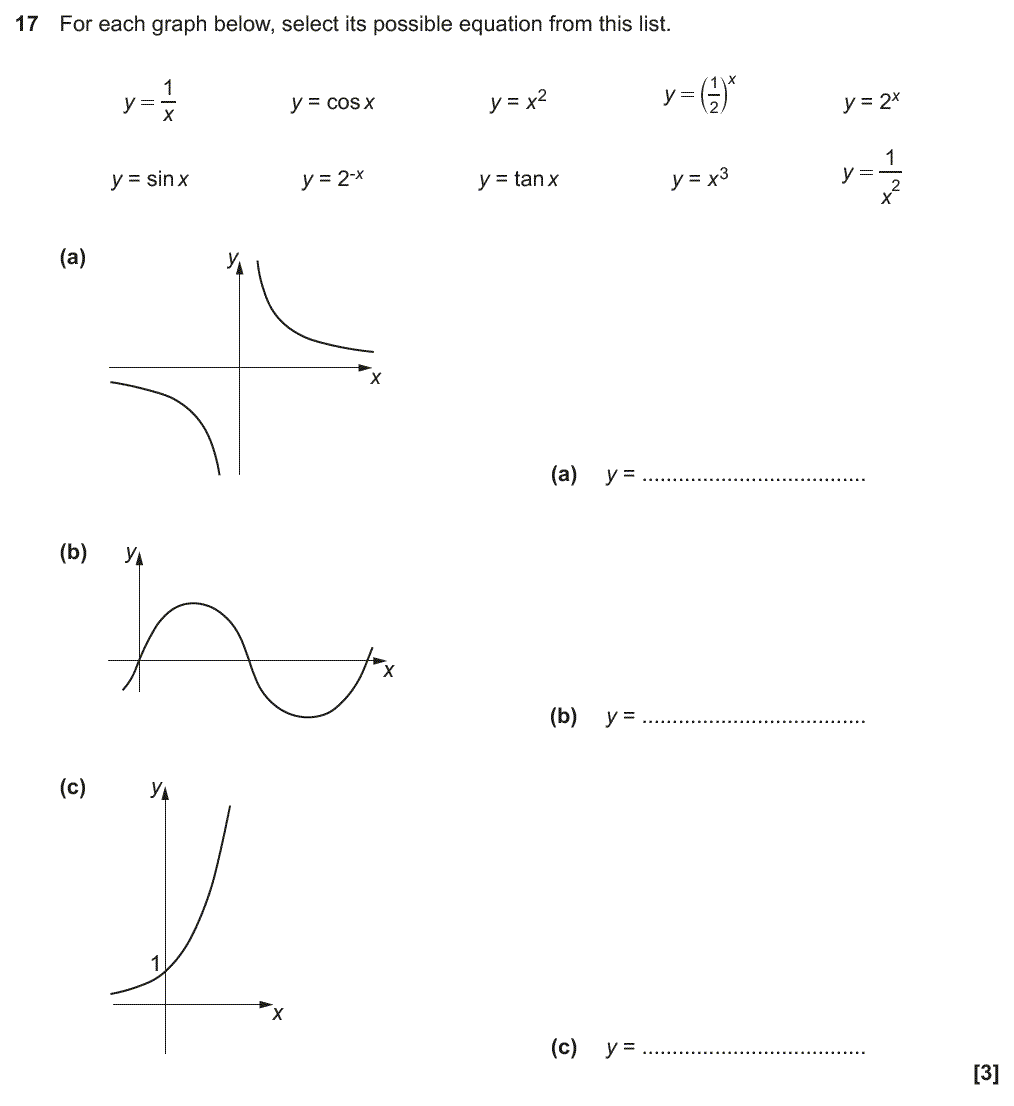







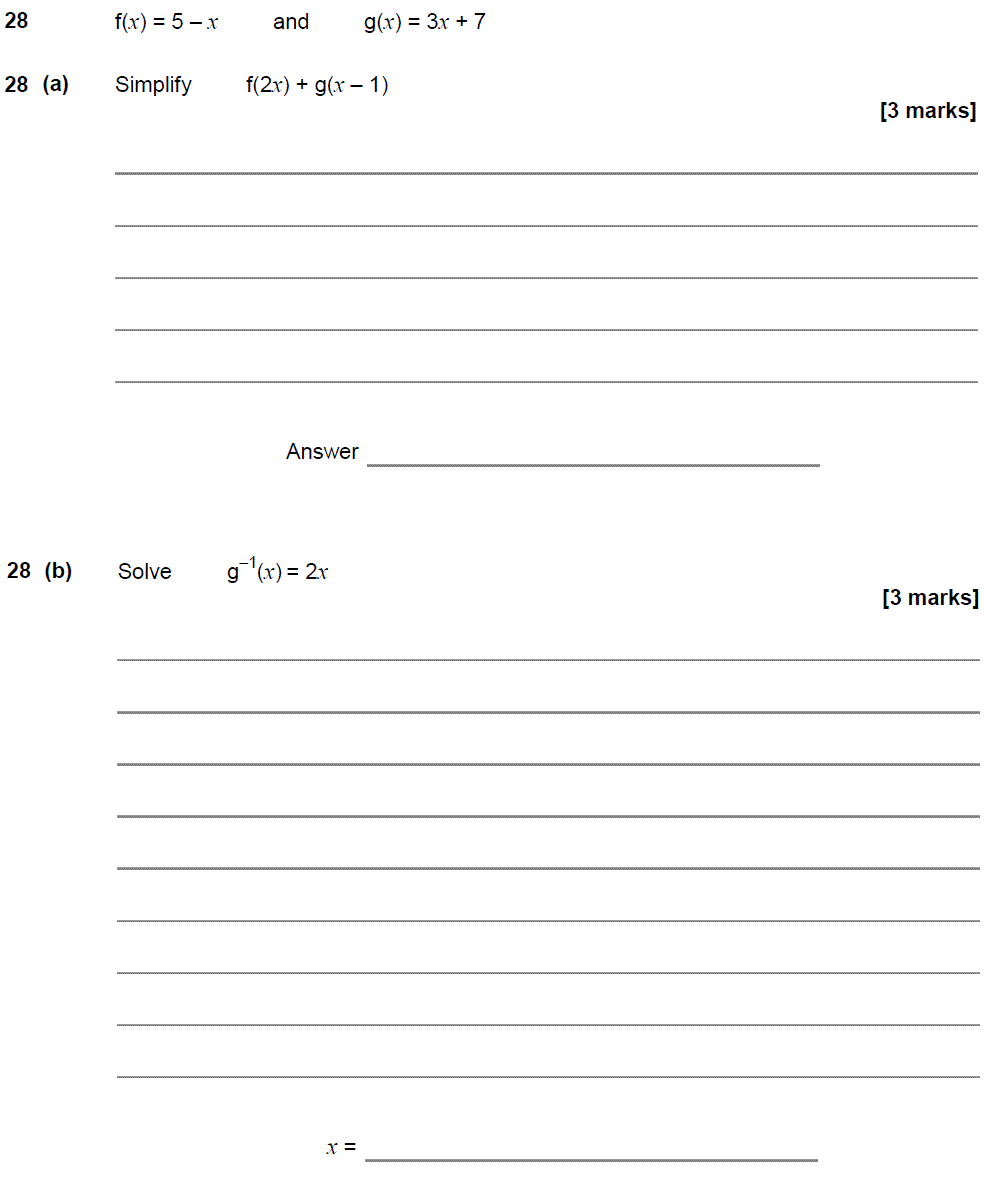

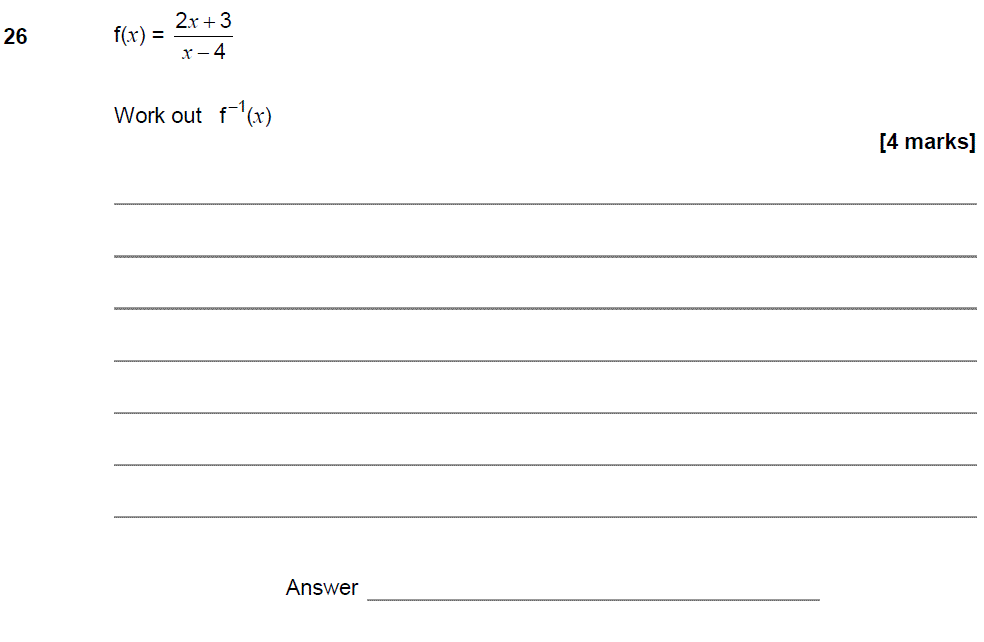

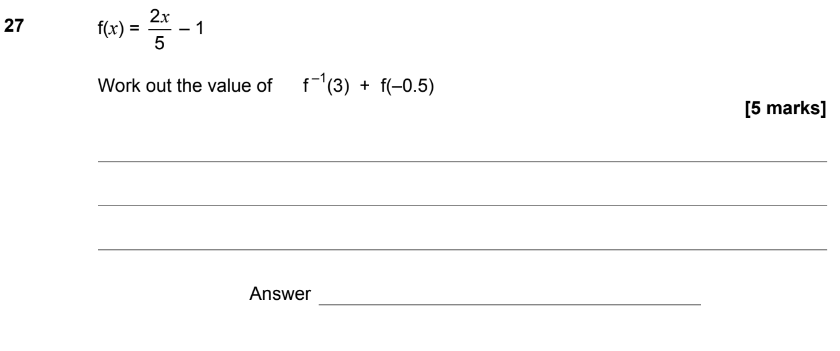



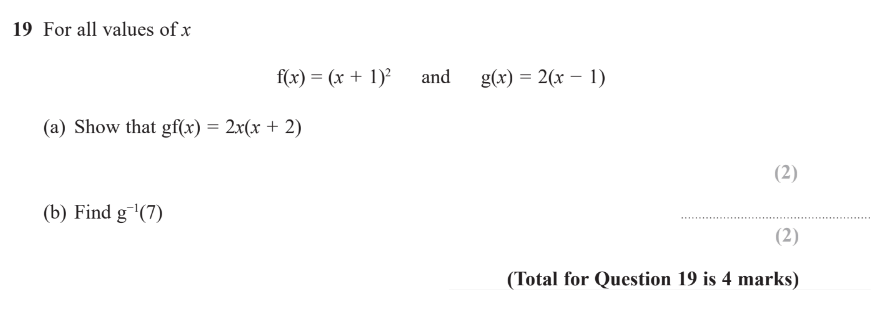

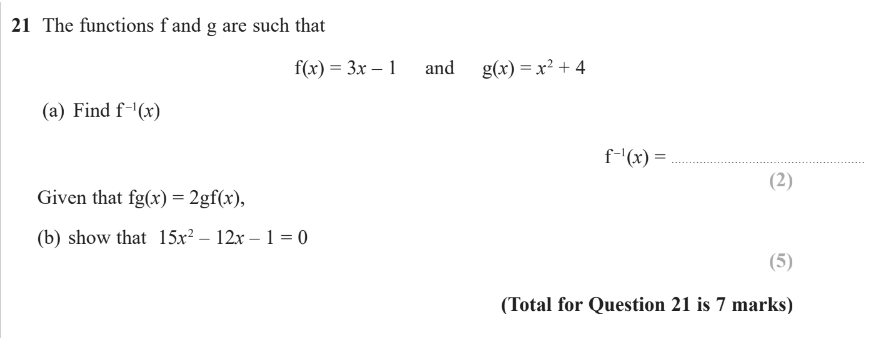

An inverse function does the exact opposite of the function it came from, that is they reverse each other. For example, if the function “triples the number and subtracts 2” its inverse will “add 2 and then one-third the result”. This is the inverse operation in backward order. The inverse function for f(x) is written as fˆ-1(x).
One way to work out an inverse function is to reverse the operations that f carries out on a number. Here is a simple example. Suppose we have 4x + 2. First, the function multiplies by 4, and then it adds 2. To get back to x from f(x), we would need to reverse these operations. So we would need to take away 2 and then divide by 4. When we undo the operations, we have to reverse the order as well. x → x - 2 →(x - 2) ÷ 4
Now we have reversed all the operations carried out by f, and so we are left with
fˆ-1(x) = (x - 2) ÷ 4
Here is one more example of how we can reverse the operations of a function to find its inverse. Suppose we have f(x) = 8 − x². We can rewrite f(x) as − x² + 8. So the first operation performed by f takes x to x²; then the result is multiplied by −1; and finally, 8 is added on. So to find the inverse function, we need to start by taking away 8. Then we need to undo the operation ‘multiply by −1’, so we divide by −1. And finally, we undo the first operation by taking the square root. x → x - 8 → 8 - x (dividing by -1) → √8-x (square root). fˆ-1(x) = √8-x.
Example: Find the inverse of the function: 3 - 4x³
Solution:
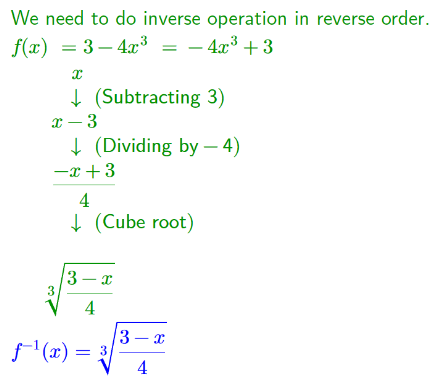
Another way to work out inverse functions is by using algebraic manipulation. Let’s take the same example as above f(x) = 4x + 2
Step 1: Write the function in the form y: y = 4x + 2
Step 2: Swap the x and y: x = 4y + 2
Step 3: Rearrange the equation to make y the subject: y = (x - 2) ÷ 4
Step 4: Write your inverse function using the fˆ-1 notation: fˆ-1 = (x - 2) ÷ 4
Example: If f(x) = 2x² - 8 find fˆ-1(x).
Solution:
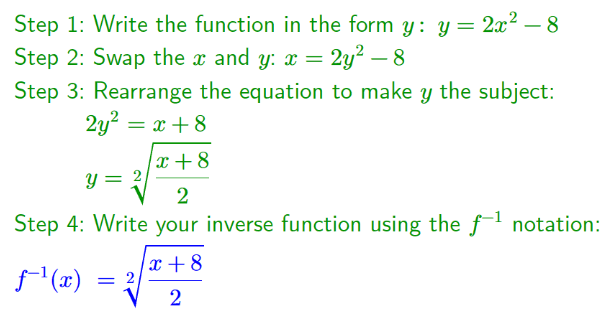
Example: If h(x) = 2x + 1/x - 1 find hˆ-1(x).
Solution:
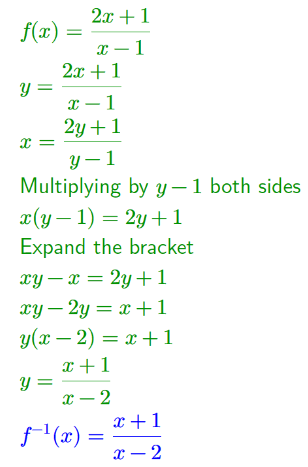
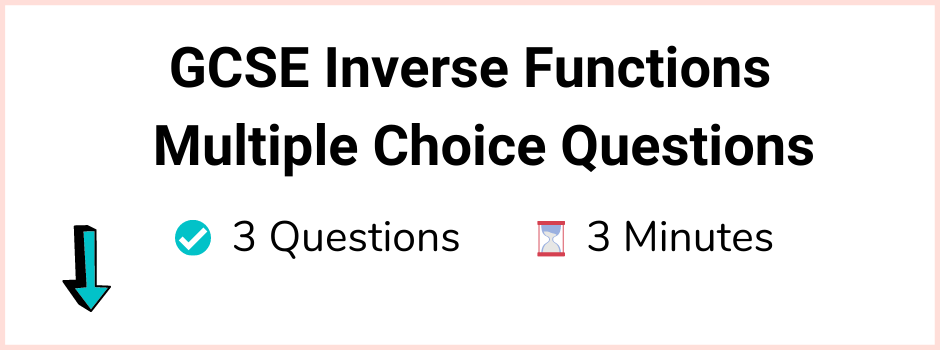
The main topics in GCSE Maths are:
With regular practice of GCSE Maths topic-wise questions and GCSE Maths past pacers, you can easily score high marks.
Although many people think of GCSE maths as a difficult subject, with the correct training and preparation,you can master it in time. You can practice GCSE Maths topic-wise questions daily to improve speed, accuracy, and time and to score high marks in the GCSE Maths exam.
A grade of 4 or 5 would be considered "good" because the government has established a 4 as the passing grade; a grade of 5 is seen as a strong pass. Therefore, anything that exceeds this level would be considered good. You can practice GCSE Maths topic-wise questions to score good grades in the GCSE Maths exam.
You can get a high score in GCSE Maths through meticulous practice of GCSE Maths topic-wise questions and GCSE Maths past papers.
© 2014 - 2024 PiAcademy Limited, All Rights Reserved